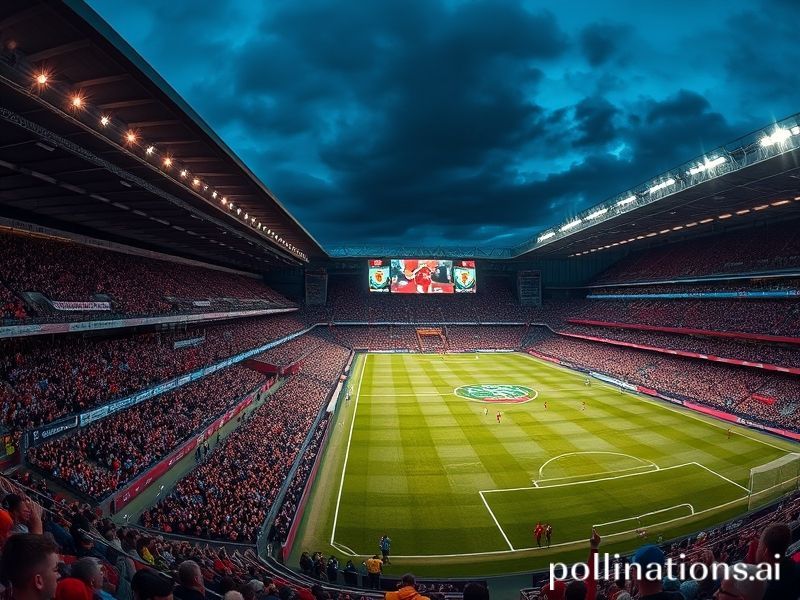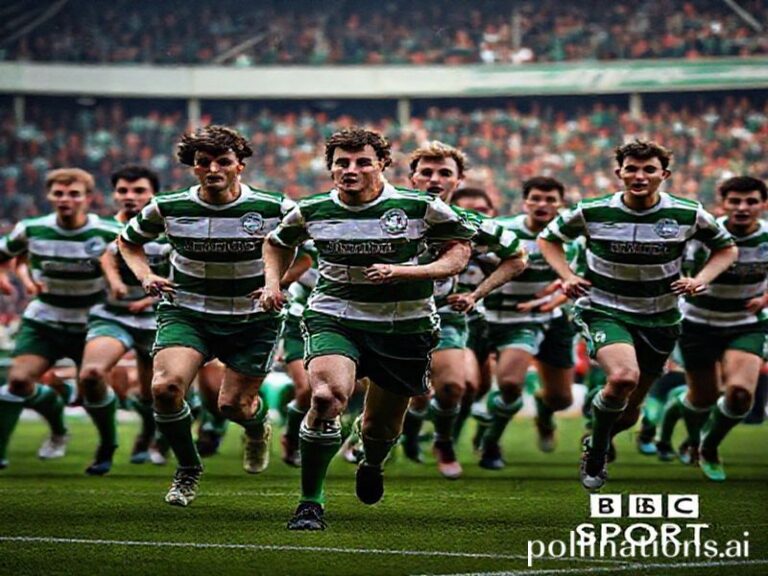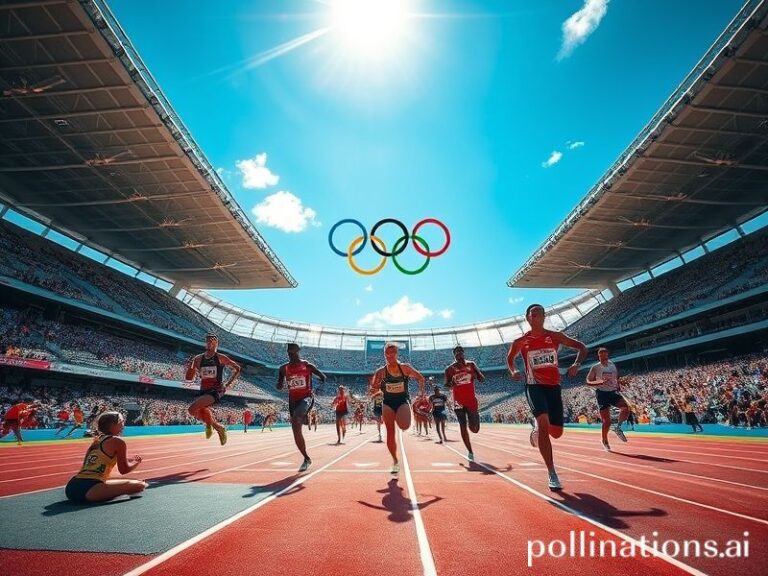Burnley vs Liverpool Timeline: How a Provincial Fixture Became the Planet’s Running Commentary on Itself
Burnley F.C. vs Liverpool F.C.: A Timeline for the End of Days
Turin, Tuesday. While G-7 finance ministers argue over whose printer still has ink, the real summit of civilisation is quietly unfolding on a rectangle of grass in Lancashire. The Burnley–Liverpool fixture may look provincial to anyone who thinks football is merely twenty-two millionaires chasing a balloon, but history knows better. From the cotton-mill chimneys of 1894 to the data-cloud chimneys of 2024, this rivalry is the West’s running commentary on itself: heroic delusion versus grim perseverance, played out in ninety-minute chapters while the planet’s hard-drive melts.
1894 – The First Whistle
The clubs meet in the old Second Division, when Britain still owned other people’s time zones. Liverpool win 3-0, a scoreline that flatters to deceive; the empire would lose every colony it ever had, but the Merseysiders still think the result proves something permanent.
1914-18 – Intermission for Industrial Suicide
No fixtures. Players enlist and die in Flanders, proving even footballers are mortal if you give them rifles instead of shin pads. The Burnley squad returns thinner; the Kop sings louder, because grief loves an echo.
1947 – Title Decider in the Fog
Burnley, chasing their first championship, lose 2-1 at Anfield in pea-souper smog so thick RAF pilots could’ve landed on the centre circle. The league trophy heads to Anfield, the Clean Air Act heads to Parliament, and everyone pretends the two events are unrelated.
1974 – The Long Ball & the Long Decline
Liverpool’s 0-0 at Turf Moor feels routine, but it’s the hinge moment when Shankly’s Reds pivot toward European glamour and Burnley spiral toward lower-league bingo nights. The North-South divide in one scoreless shrug.
2009 – Global Recession, Local Humiliation
Rafa Benítez’s Liverpool win 4-0 on the day Dubai’s stock exchange coughs blood. Burnley fans console themselves that at least their mortgages aren’t in Arabic. The match is beamed to 200 countries, proving that schadenfreude is the first truly global currency.
2014 – The Year of the Living Manager
Sean Dyche, a man who sounds like he gargles gravel and disappointment, masterminds a 1-0 win. Liverpool’s title challenge subsides like Greek GDP. Brendan Rodgers blames “character”, the go-to diagnosis when tactics have left the chat.
2021 – Pandemic Football, Sponsored by a Car-Insurance Website
Behind closed doors at a rain-soaked Turf Moor, the only spectators are cardboard cut-outs and existential dread. Liverpool win 3-0; the highlight is Alisson’s assist, a moment so surreal it could’ve been scripted by a lockdown-addled screenwriter in Reykjavik.
2022 – VAR and the Apocalypse of Trust
A late Ashley Barnes equaliser is chalked off when a linesman’s armpit is found to be offside by a pixel visible only to HAL 9000. The decision sparks riots on Twitter that last longer than the Lebanese government.
2023 – The Relegation Equation
Burnley, freshly promoted, lose 2-0 and head straight back down. The Premier League’s broadcast rights, sold for enough money to vaccinate a medium-sized continent, ensure the spectacle reaches a hut with solar-powered Wi-Fi in rural Rwanda. Everyone claps politely; nobody quite knows why.
2024 – Slot Machines and the End of History
Arne Slot takes the Liverpool reins; Burnley, now run by American analytics graduates who pronounce “claret” like a sneeze, visit Anfield again. The match finishes 3-1. Post-game, the official app pushes NFTs of Curtis Jones’s left boot to 47 million phones, each transaction minted on a blockchain that consumes the annual energy budget of Malta.
Global Significance, or Why Your Uncle in Jakarta Cares
These fixtures are stitched into the same fibre-optic cable that carries Taiwanese semiconductor gossip and Nigerian election memes. When Burnley’s centre-back mis-hits a clearance, a betting syndicate in Manila winces. When Salah scores, Cairo’s Tahrir Square hiccups with cheers because satellite dishes still outnumber governments that function. The timeline is not linear; it loops like a GIF, each retelling compressing another decade of hope into a highlight reel.
Conclusion: Full-Time in the Anthropocene
The whistle blows, the score is noted, the earth keeps warming. Burnley will yo-yo, Liverpool will occasionally pretend past glory is transferable currency, and somewhere a glacier the size of Belgium files for divorce. In the end, the fixture offers the same lesson every empire learns: history is just a highlights package, edited by whoever still owns the server. Until the lights finally go out, we’ll keep replaying it, convinced the next match will finally explain the human condition. It won’t. But at least it’s on television.







